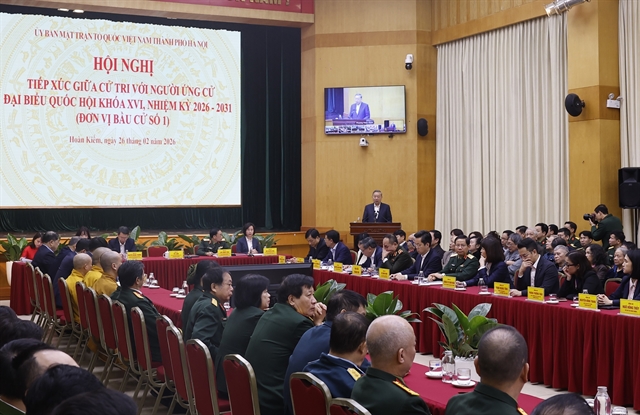 Economy
Economy


|
| As of June 30 this year, Vietcombank, MB, VPBank and HDBank had a total outstanding loan of nearly VNĐ3.8 quadrillion. — Photo tinnhanhchungkhoan.vn |
HÀ NỘI — Banks that undertake a mandatory transfer of weak banks will have their reserve requirement ratio reduced by 50 per cent from October 1 this year, according to a newly issued circular from the State Bank of Vietnam (SBV).
This policy is expected to motivate large banks to participate in handling weak banks, while opening up more credit space for the economy.
With the new policy, banks like Vietcombank, MB, VPBank and HDBank will receive the preferential reserve ratio, as they undertook mandatory transfer of weak banks such as CB, OceanBank, DongA Bank and GPBank.
Specifically, Vietcombank, MB, VPBank and HDBank will only have to set aside a reserve requirement ratio of 1.5 per cent for deposits under 12 months and 0.5 per cent for deposits of 12 months or more, instead of the current 3 per cent and 1 per cent. The change will release a significant amount of capital for the four banks.
As of June 30 this year, Vietcombank, MB, VPBank and HDBank had a total outstanding loan of nearly VNĐ3.8 quadrillion, accounting for about 25 per cent of the total outstanding loans of the entire economy.
According to Nguyễn Thế Minh, director of the Yuanta Securities Vietnam Company’s research and development division for individual customers, the new circular reducing the reserve requirement ratio can be considered a form of loosening monetary policy by the SBV.
However, Minh suggests that the SBV needs to establish a strict monitoring mechanism, similar to the ‘stress test’ standards in Basel II and Basel III, to evaluate the performance of the banks after the acquisition to avoid the risk of increasing bad debt. — BIZHUB/VNS




